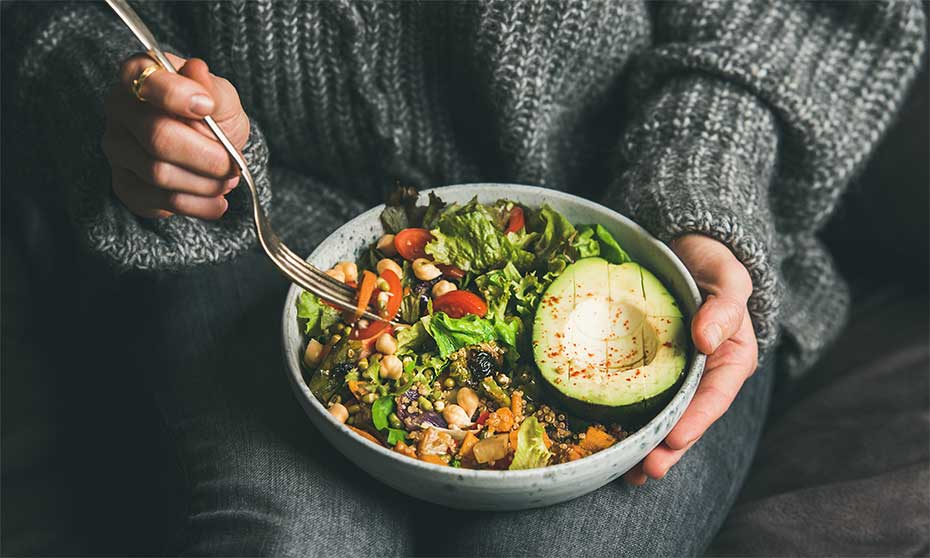Does Food & Diet Matter During Inpatient Drug Rehab?
Food and diet matter during an inpatient drug rehab program. In fact, good nutrition is a crucial part of addiction treatment, as it can improve your well-being as well as treatment outcome.

Food and diet matter during an inpatient drug rehab program. A healthy diet can improve your well-being, mental health, and physical health while you go through the addiction recovery process.
Poor nutrition is a common side effect of an alcohol or drug addiction. This is because alcohol and drugs can affect your appetite, digestive system, and other parts of your body. Drug and alcohol use can also cause severe cravings, which can affect your ability to eat properly.
According to one study, almost one quarter of patients going through substance abuse treatment have some form of malnutrition. If you have a substance use disorder, you may receive dietary support when you reach out to an Ohio addiction treatment center.
The Importance Of Nutrition During Rehab
Nutritional deficiencies can be a side effect of alcohol or drug abuse. This is why many substance use disorder treatment programs provide dietary support from a nutritionist.
During an inpatient addiction recovery program, your nutritionist can recommend a balanced diet with many vitamins and minerals. If you are dehydrated, you may also drink high amounts of fluids every day. Healthy foods you may eat during an addiction treatment program may include:
- foods with complex carbohydrates, such as whole grains
- foods high in omega-3 fatty acids, such as fish and nuts
- foods with amino acids, such as dairy
- leafy greens
- high amounts of water
- drinks with electrolytes, such as sports drinks
These foods can help you regulate neurotransmitters, which are brain chemicals linked to mood, motivation, and more. Your treatment provider can also add vitamins and supplements to your new diet. B vitamin, magnesium, and potassium supplements may be recommended based on your specific needs.
Food That Can Hinder Your Recovery
While healthy eating is an important part of addiction treatment, some foods can interact with certain drugs. Even healthy foods, such as grapefruits, soy, and bananas, can reduce the effectiveness of certain medications. They can also cause unpleasant side effects.
You may take prescription drugs as part of your Ohio treatment program. You can talk to your treatment provider if you have concerns about your diet and drug interactions.
During an inpatient rehab program, you may also avoid eating foods high in carbs, trans fats, and cholesterol, including many fast foods. These foods may not provide proper nutrition, and can worsen side effects such as constipation or upset stomach.
The Relationship Between Proper Nutrition & Drug Use
Some forms of drug or alcohol abuse can affect your appetite. Drugs that can cause a loss of appetite may include opioids and some stimulant drugs. Taking these drugs over a long period of time can lead to poor eating habits and malnutrition.
Drugs, such as antidepressants, beta-blockers, and antipsychotics can cause an increase in appetite. Taking these drugs over a long period of time can lead to weight gain, gastrointestinal problems, and malnutrition.
Some drugs can damage parts of your body related to digestion and absorption of nutrients.
Excessive alcohol use can hurt your liver and pancreas, while many types of drugs can affect your digestive system. If your body cannot break down food properly, you may not get the nutrients your body needs.
Ohio Recovery Center
If you are struggling with a drug or alcohol addiction, proper eating habits may not be a priority for you. However, proper nutrition is a crucial part of your recovery process.
If you are looking for an addiction treatment program that offers dietary support for you or your loved one, you can contact Ohio Recovery Center today.
Our addiction treatment services include drug and alcohol detox programs, dietary support, mental health support, and management of withdrawal symptoms. We can address many aspects of an alcohol or drug addiction to improve your overall health in the long term.
- National Library of Medicine: MedlinePlus https://medlineplus.gov/ency/article/002149.htm
- Nutrition Reviews https://www.ncbi.nlm.nih.gov/pmc/articles/PMC8114851/

